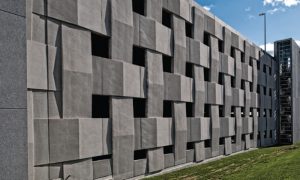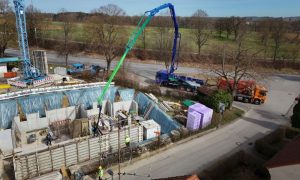Specialist subject
The Legal Group’s head of real estate, Ammad Naser, tells Melanie Mingas about his new employer’s expansion drive in the face of the UAE’s developing real estate regulation

The figures speak for themselves. Earlier in 2012, statistics showed real estate transactions in Dubai to be up 9% on the previous quarter with the total number of transactions up 5% quarter on quarter.
While the Emirate’s “emerging” residential locations, such as IMPZ, Sports City Silicon Oasis and Jumeirah Village, still struggle to attract tenants ahead of the completion of vital infrastructure, the market is also witnessing an increase in foreign investors willing to buy distressed assets.
“The partners here have realised that the market is gaining traction again and that they require the diversity and ability to handle transactional work as well as the disputes that are going on,” explains TLG’s recently appointed head of real estate, Ammad Naser, who has been brought in by The Legal Group to do just that, in light of observations of the changing market dynamics.
“Disputes unfortunately are always going to be there because of what happened in 2008, but because there is now more movement on the transactional side, and with foreign investments coming in to buy distressed projects, there needs to be somebody there who can handle the transactional side,” Naser adds.
The changes are being driven by the introduction of a number of laws and regulations, covering property and local and international investment.
“We have actually seen a reduction in service charges since the Strata Law was introduced and there are more transactions as a result. Also investors can actually see a difference with regards to the development they live in or have invested in,” Naser observes, further commenting that the impact on the market has been “fantastic”.
It was whilst working for Bangash Holdings that Naser had his first opportunity to be involved in the development of Dubai’s new real estate legislation; restructuring the JOPD prior to obtaining disclosure for his client.
As opposed to outsourcing the work, it was decided to keep the work in house, thus providing Naser opportunity to draft and prepare all documentation required by RERA.
Recalling the work was “stressful”, he says the regulations introduced by the body are integral to the improvements in investor confidence.
“It will take time and personally I think it will be about five years before the market sees a steady incline; not to the same levels as pre-2008, but I do see Dubai in five to ten years time at the same levels as New York and Paris, where you always have an increment in the prices and values of properties,” he predicts, saying the upturn in the market will be completely dependent on new laws, specifically to protect investors.
“The trust account was a fantastic move, albeit a little late, but these sorts of small nuances that are helping the market regain its traction,” he continues.
Criticism of Dubai law has been levied from all corners; albeit mostly from disgruntled investors and uneducated overseas business people.
“One thing everybody has to remember is that Dubai’s legal system is still in its early stages. The powers that be realise new laws need to be implemented and it will be a slow process.
“It’s not a case of not wanting to evolve, they want to become the hub of business trading in the Middle East, the next Singapore or New York, and it will get there,” he adds.
Dubai bug
Born and raised in Manchester, UK, Naser initially studied accountancy and finance before realising that his interests lay in law. A graduate of the University of Central Lancashire, Naser’s career began with a voluntary internship at Wolstenholmes, south Manchester, which then led to three and a half years’ paid work with the firm, during which time Naser worked his way through the ranks to the position of non-executive director.
Naser has also acted as external counsel for Main Finance, HBOS and Santander where independent counsel was required in addition to the lawyers working on transactions. Naser recalls that is was after this he “caught the Dubai bug”.
“To be honest with you, even at law school I didn’t see myself finishing my career in the UK. I wanted to move abroad, take the skills I had honed in the UK and export them to a place like Dubai that was and still is growing as a legal entity,” he says.
Now that Dubai is his home, Naser says the best opportunity is to be involved in the development of the Emirate’s laws and has completed the DEIR owner association management programme, since moving to Dubai in order to gain the bigger picture overview of how various legislations interlink.
“The laws that are being implemented at the moment in regards to the protection of investors have actually been emailed across to all lawyers through West Law providing a medium for them to pass comments.
“For a lawyer it’s fantastic to have that involvement because you can actually have a say in the laws that are being created, whereas if you are back in the UK, it’s all much higher in the echelons of government and the lobbyists that are dealing with the laws that are being passed,” he concludes

























